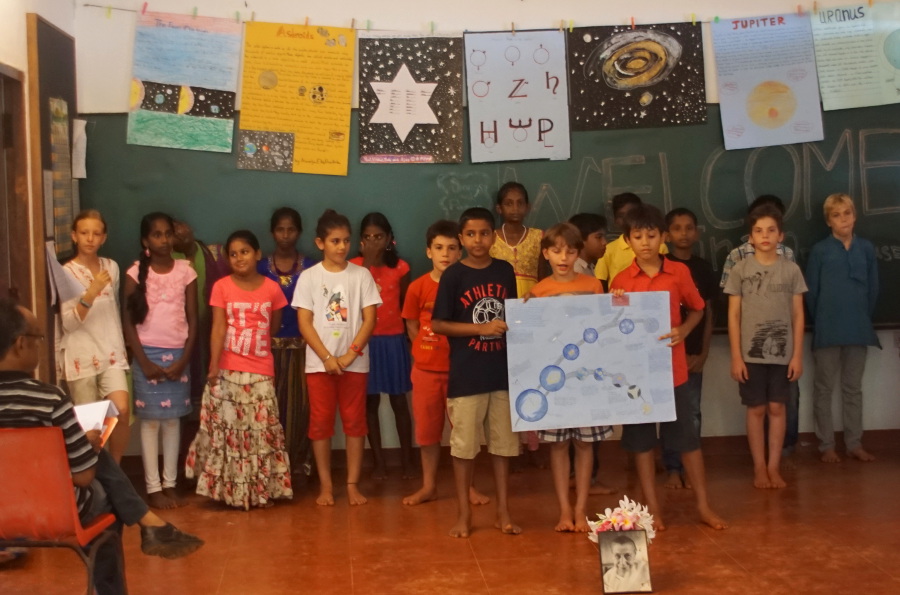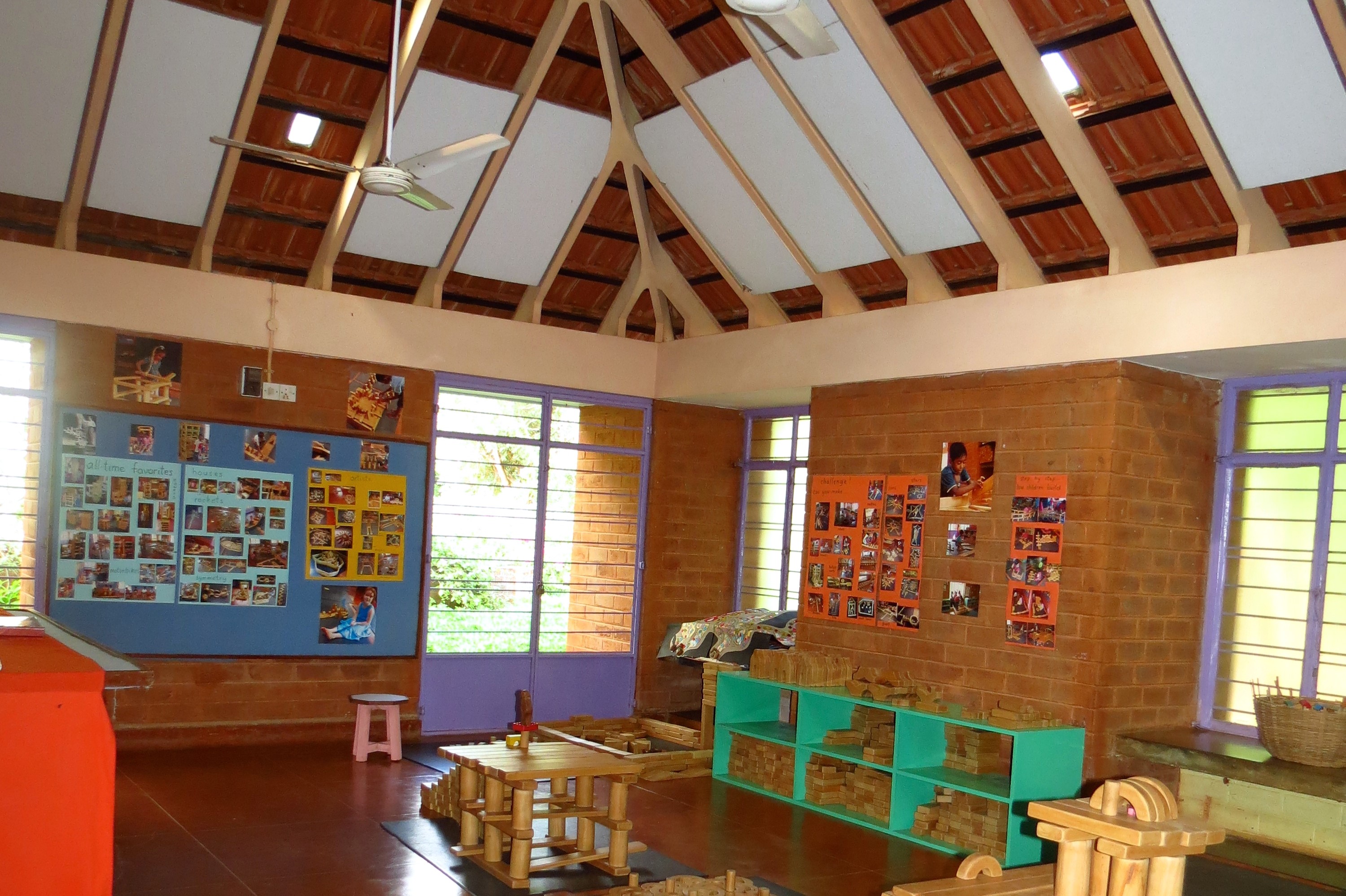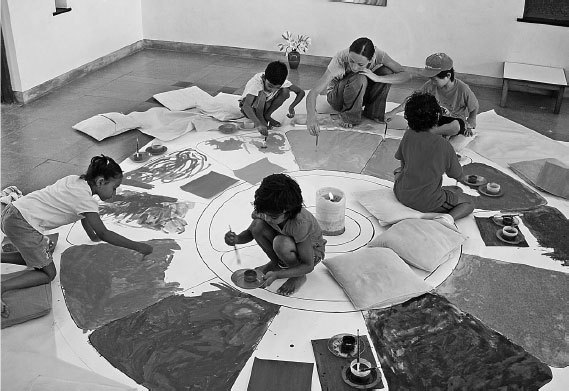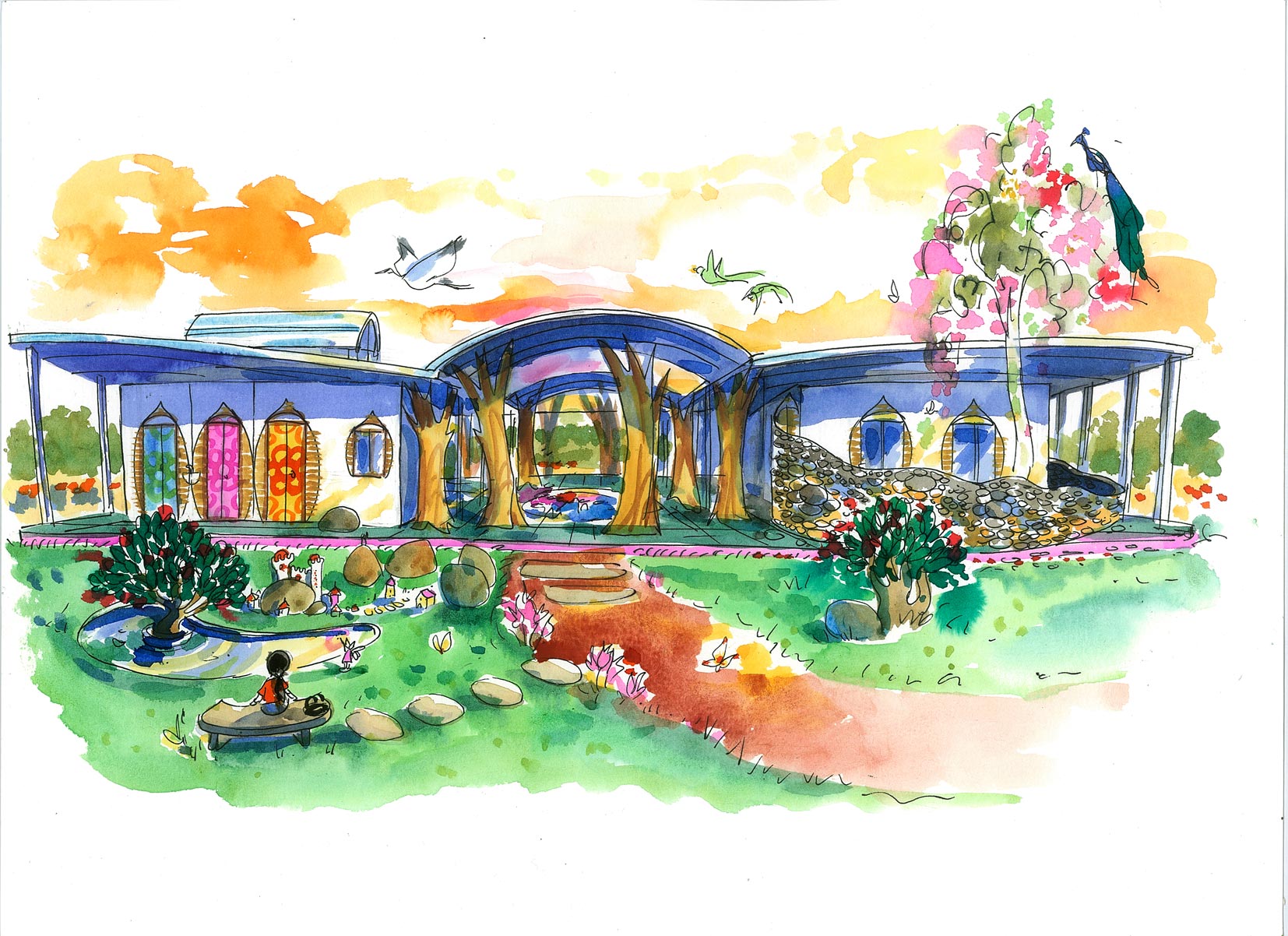Transition School

Transition School is a primary and middle school for the children of Aurovilians. Presently about 160 children attend the school, representing 19 countries and various states of India.
This cultural diversity has led to a dynamic, creative teaching and learning experience with ample opportunity to appreciate and understand cultural differences. The school day runs from 8.20 am to 3.30 pm, and the students participate in a physical education programme after school. This is one of the larger schools of Auroville, with 10+ classrooms, an ‘Awareness Through the Body’ hall, music hall, computer room, library, and arts & crafts centre. English is the medium of instruction, and Tamil and French are also taught as both first and second languages. Some 30-40 Aurovilians assist in teaching and coordination.
Transition School which opened in 1985 with about 40 students, is located in the north west area of the Cultural Zone on the edge of the Green Belt forest. The school offers a multi-cultural environment along with stimulating opportunities for dynamic, creative teaching and learning experiences. It also exposes teachers and children to humanity’s rich cultural heritage and diversity.
Inspired by the teachings of Sri Aurobindo and the Mother, we aim to promote human unity and to help our children to develop integrally so that they may reach their full potential. Our programme initiates what will hopefully be a lifelong process of individual development towards a balance of body, mind, and spirit. Children from different cultural and ethnic backgrounds grow together in an atmosphere of protected freedom and harmony, developing an understanding that we are citizens of one world. Our deepest aspiration is to prepare our children and ourselves to live in a higher consciousness to manifest a truer and higher life on earth.
The programme is child and process-oriented. Attention is given to our student’s academic progress, motivation, attitude, and ability to work in a group. We value practices that heighten observation, concentration, self-awareness, and creativity. Themes such as truth, human unity, empathy, freedom, and progress are introduced so that our children can develop a sense of values. We impart to our students the idea that they are learning for their own pleasure and growth, and their progress is the goal, and each subject is viewed as a tool for self-discovery, as well as an aid to help the children express themselves and gain knowledge. As we offer a holistic and integrated education, class sizes do not exceed 20 students. This creates an environment in which teachers are able to know and follow each child individually. The teacher is able to combine individual with group activities and adjust to the specific needs of the individual within the group. This helps to foster a group spirit of cooperation rather than competition.
The programme includes traditional subjects such as reading, writing, math, science, computer, environmental and social studies, music, physical education, and arts and crafts. Less traditional subjects for primary and middle school are Awareness through the Body, Sandbox, and “logic and strategic games”. The languages of Auroville – French, Tamil, English, and Sanskrit – are taught at Transition. English is the medium of instruction, French and Tamil are taught as first and second languages, and Sanskrit in the form of songs. Our children learn the subject matter, and equally important, they learn how to be together, to share, to express themselves, and to be responsible for their actions. We believe that this approach and focus help our students to become effective, self-directed learners who can function both independently and cooperatively.
Each class has a teacher who is responsible for the overall progress of the class. Our teachers use an eclectic approach, including cooperative learning, individual work, and class and school projects to address different learning styles. We create an atmosphere where our students feel good about themselves as learners and are willing to take risks, knowing that each individual has strengths and weaknesses and that we learn from our mistakes. Classes have a ratio of one educator to ten students. Schoolwork is often structured around projects, which integrate several subjects such as science, language arts, and social studies and often include outings in the community.
Class meetings are a very important part of our programme. During one of the first class meetings, children entering Transition choose their class names. Meetings offer a safe space for discussions on many different topics that are important to the children’s lives and provide a forum where successes are shared and problems are discussed and solved by the entire class. Students help to formulate the class guidelines. Freedom and choice are important elements of the programme within a well-defined structure and with basic guidelines.
Transition School does not use a traditional grading system. Teachers have regular meetings with each of their students to evaluate their learning and personal progress through portfolios and periodic reviews. Parent-teacher conferences occur throughout the year.
Transition School functions within a community of volunteer workers who are dedicated to the Charter of Auroville. There is no principal or administrator that determines programmes or policies. Instead, decision-making occurs through a participatory process at weekly teachers’ meetings.
One of the points of the Charter is for Auroville to be “a place of an unending education, of constant progress, and a youth that never ages.” We are constantly striving to improve our curriculum, our methodology, and our approach to education so that children have the possibility to reach their full potential.
Get in Touch
See Also



